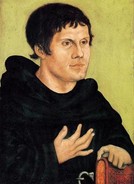
by Rev. Robert D. Shofner, Jr.
St. John's UCC Boonville, Indiana
In the past few years there have been a slew of new books which make a direct attack on Western Christianity. Richard Dawkins’ The God Delusion and Samuel Harris’ The End of Faith along with others such as Christopher Hitchen’s God Is Not Great, make the case that our western society would be a lot better off if we just got rid of all vestiges of Christianity. They contend that we live in a secular, post-modern era that has no room nor patience for the patriarchal, nationalistic and oppressive religion of our fathers. Dinesh D’Souza, author and political thinker, states that unfortunately, what these ill—informed atheists fail to realize is, that religion, Christianity, is responsible for the principles and institutions that even atheists cherish; chief among them, equality and the liberty to proclaim that God is dead. His argument continues thusly.
Thomas Jefferson famously proclaimed in the Declaration of Indepe
ndence that “all men are created equal.” He wrote that this truth was clearly “self-evident.” However, he didn’t mean that it is immediately evident.
There is something absurd about the claim of human equality, when all around us we see evidence of inequality. People are unequal in height, weight, strength, stamina, intelligence, perseverance, truthfulness, and in about every other quality. But this kind of equality is not what Jefferson was talking about. He was asserting that human beings are moral equals, each of whom possesses certain equal rights. No matter how they differ in other respects, each person’s life has a moral worth no greater and no less than that of any other. To this way of thinking, the rights of a Philadelphia street sweeper are the same as Jefferson himself.
Where did this radical idea come from? Christianity. Many would say that it came from the example of the democracies of Greece and Rome . The founding fathers would say otherwise. One contributor to the Federalist Papers wrote: “Had every Athenian citizen been a Socrates, every Athenian assembly would still have been a mob.” Obviously, they were no
t enamored with that kind of direct democracy susceptible to the passions of the mob and supported by large-scale slavery, nor with the morality that was the norm in those ancient days.
In ancient Greece and Rome , individual human life had no value in and of itself. Abortion was rampant. The Spartans left weak children to die of exposure. Fathers who wanted sons would, without conscience, drown their newborn daughters. Human beings were routinely bludgeoned to death or mauled by wild animals for entertainment purposes. Roman Christians were dipped in tar, hung on posts, and set on fire to provide background lighting for Nero’s garden parties. Many of the classical thinkers saw nothing wrong with these practices. It would take Christianity to foster moral outrage at the mistreatment of innocent human life.
Likewise, women had a very low status in ancient Greece and Rome , as they do today in many cultures, notably in the Muslim world. Such views are common in patriarchal cultures. Arguably, they were prevalent in the Jewish society in which Jesus lived. But Jesus broke the traditional taboos of his time when he scandalously included women of low social status to travel with him and be part of his circle of friends.
Christian views of marriage and divorce served to so elevate the status of women that they flocked to the fledgling Church, so much so that Romans scorned Christianity as a “religion for women.”
Then there is slavery, a favorite topic for the new atheist writers. Samuel Harris writes in Letter to a Christian Nation, “Consult the Bible and you will discover that the creator of the universe clearly expects us to keep slaves.” We want to remember that slavery pre-dated Christianity by centuries. It was widely practiced in the ancient world, from China and India to Greece and Rome . Most cultures regarded it as an indispensable institution. Sociologist Orlando Patterson noted that for centuries, slavery needed no defenders because it had no critics.
Christianity, from its very beginning, discouraged the enslavement of fellow Christians. After all, how can a slave also be a brother in Christ? Christians began to regard slavery as indefensible. As a result, slavery withered throughout medieval Christianity and was replaced by serfdom. While slaves were “human tools,” serfs had rights of marriage, contract, and property ownership that were legally enforceable. In the course of time, serfdom collapsed under the weight of the argument for human dignity.
Christianity played a vital role in the development of that new concept of freedom through its doctrine that all human beings are moral agents, created in God’s image, with the ability to be the architects of their own lives. The Enlightenment philosophers and politicos continued to contribute to this understanding of human freedom, drawing their ideas from the teachings of the Church.
Politically active Christians remained at the forefront of the modern anti-slavery movement. In England , William Wilberforce spent years of his life pushing for abolition, which finally came about in 1833. In what would become the United States , Quakers led the way, soon joined by others, notably the Congregationalists, in applying politically the Biblical notion that human beings are equal in the sight of God. Understanding equality in this way, these Christians promoted the view that no man has the right to rule another man without his consent. This idea, contained in the Declaration of Independence and set as law in the Constitution, is the moral root of both abolitionism and of democracy.
What many atheists fail to realize, or refuse to acknowledge, is that some of the greatest events in American history were preceded by massive Christian revivals. The First Great Awakening swept the country in the mid-eighteenth century and helped lay the moral foundation for the American Revolution. When Jefferson proclaimed that human equality is a gift from God, he was explicitly saying that we are endowed by our Creator with inalienable rights. There is no other possible source for them. Jefferson later wrote that he was not expressing new ideas or principles when he wrote the Declaration, but was rather giving voice to something that had become settled in the American mind.
John Adams wrote: “What do we mean by the American Revolution? The war? That was no part of the Revolution; it was only an effect and consequence of it. The Revolution was in the minds of the people … a change in their religious sentiments.” Those religious sentiments were forged in the fiery sermons of the First Great Awakening.
The Second Great Awakening, which began in the early nineteenth century, left in its wake the temperance movement, the movement for women’s suffrage, and most importantly the abolitionist movement. It was the religious fervor of men like Charles Finney, the Presbyterian lawyer who became president of Oberlin College , that animated the abolitionist cause and contributed so much to the chain of events that brought about America ’s “new birth of freedom.”
Fast forwarding to the twentieth century, the Reverend Martin Luther King’s “I Have a Dream” speech referred to a promissory note and demanded it be cashed. He said: “. . . we have come to our nation's capital to cash a check.
When the architects of our republic wrote the magnificent words of the Constitution and the Declaration of Independence, they were signing a promissory note to which every American was to fall heir. This note was a promise that all men, yes, black men as well as white men, would be guaranteed the unalienable rights of life, liberty, and the pursuit of happiness.”
Remarkably, King was resting his case on a proclamation issued 200 years earlier by a Southern slave owner. Yet in doing so, he was appealing to a principle that he and Jefferson shared. Both men, the twentieth century pastor and the eighteenth century planter, reflected the influence of Christianity on American politics; a politic that promotes and preserves freedom.
And what is freedom?
To the ancient Greeks, freedom was the right to active involvement in the political life of the city. There was certainly no freedom of thought or religion of the kind we hold dear.
The modern idea of freedom, by contrast, is rooted in a respect for the individual. It means the right to worship in any way we chose or are so moved, be that Christian, Muslin, Hindu, Buddhist, even this New Age nonsense promoted by Oprah Winfry! It means the right to buy and sell property, the right to travel where we want, the right to own our own personal space, and the right to live our own life. It even means the right to run for President! In return, we are responsible only to respect the rights of others.
This is the freedom we say we are willing to fight for. But are we really?
One of Western civilization’s greatest atheists was a German philosopher by the name of Friedrich Nietzsche. He issued a warning to us. He said the ideas that define Western civilization are based on Christianity. Because some of these ideas seem to have taken on a life of their own, we might have the illusion that we can abandon Christianity while retaining these ideas. This illusion, Nietzsche warns, is just that. Remove Christianity and the ideas fall too.
Consider the example of Europe , where secularization has been occurring for well over a century. For a while it seemed that secularization would have no effect on European morality or religious and social institutions. Yet there is increasing evidence today of the decline of the nuclear family. Overall birthrates have plummeted, while rates of divorce and out-of-wedlock births have skyrocketed. And in the churches, priests are offering up the Eucharist in front of altars facing empty naves.
The same sad tale in true in our own country. Divorce rates, abortion, out-of-wedlock births, drug addiction – all have increased dramatically. Church attendance has dropped significantly; less than 20% of the overall population regularly attends worship, down from over 60% in the 1950’s. (And you thought it was all the preacher’s fault!)
Nietzsche also warned that, with the decline of Christianity, new and opposing ideas would arise. Consider the states, and sadly, the national churches, such as our own United Church of Christ, which demand radical redefinition of the family, the revival of eugenic theories, and even arguments for infanticide.
What does this have to do with us on this day?
The eradication of orthodox Christianity – and of organized religion in general – would also mean the gradual extinction of the principles of human dignity. Consider human equality. Why do we hold it dear? Because of the Christian idea of equality in God’s eyes. The attempt to ground respect for equality on purely secular grounds is folly. There is no basis on which to do so, other than it seems the “right thing to do.” It only seems the “right thing to do” because it is based on God’s Word and the ideals of the Christian faith. Take that away, and it is sheer stupidity to believe it could survive without the continuing aid of religious belief.
If we cherish what is distinctive about Western civilization, then – whatever our religious conviction – we should respect rather than denigrate its Christian roots.
How? By supporting our local church. By teaching our children the values of the Christian faith. By respecting the faith of others in this nation. By staying vigilant and speaking up when politicians, and even church leaders, suggest that we abandoned the heritage of our faith in this so-called post-modern age. By always remembering that God blesses this nation not because of our strength, but because of our faith.
Let’s pray.
Heavenly Father, Your Word has given us a goodly heritage, a heritage that ultimately overcomes the barriers that sinful human nature builds between peoples and nations and creeds. Let us always remember that it is from You that we gain our worth; that it is in the light of Your Word that we recognize all people are created in Your image, and are therefore equal in Your sight. For You loved this world so much that You sent Your only Son to us, not that we should be condemned, but that we, and all peoples, might be saved through Him.
And the people said, “Amen.”











 1. Sola Scriptura – “The Bible alone.” Scripture alone speaks authoritatively, and it speaks to all believers, independently of church leaders and councils, human interpreters and so-called spokesmen for God.
1. Sola Scriptura – “The Bible alone.” Scripture alone speaks authoritatively, and it speaks to all believers, independently of church leaders and councils, human interpreters and so-called spokesmen for God.


